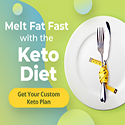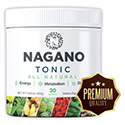Eating For Better Health – Vitamins

Vitamins are essential nutrients that our bodies need to function properly. They play a crucial role in various bodily functions, including metabolism, immunity, and overall health. There are 13 essential vitamins that our bodies require to stay healthy, and they can be broadly categorized into two groups: fat-soluble vitamins and water-soluble vitamins.
The Two Types of Vitamins
Fat-soluble vitamins include vitamins A, D, E, and K. These vitamins are stored in the body’s fat tissues and liver, meaning they can build up over time and potentially reach toxic levels if consumed in excess. On the other hand, water-soluble vitamins, such as vitamin C and the B vitamins (including B1, B2, B3, B5, B6, B7, B9, and B12), are not stored in the body and are excreted through urine. This means that they need to be replenished regularly through diet.
Foods High in Vitamins
To ensure you are getting an adequate amount of vitamins in your diet, it’s essential to consume a variety of foods that are rich in these nutrients. Here are some examples of foods that are high in vitamins:
– Vitamin A: Carrots, sweet potatoes, spinach, and kale.
– Vitamin D: Fatty fish (like salmon and mackerel), fortified dairy products, and sunlight.
– Vitamin E: Nuts and seeds, spinach, and broccoli.
– Vitamin K: Leafy greens, broccoli, and prunes.
– Vitamin C: Citrus fruits, strawberries, bell peppers, and kiwi.
– B vitamins: Whole grains, meat, fish, eggs, dairy products, and leafy greens.
Tips for Obtaining the Most Vitamins Out of Food
While it’s important to include a variety of nutrient-rich foods in your diet, there are some tips to help you get the most out of the vitamins in your foods:
1. Eat whole, minimally processed foods: Nutrients are often lost during food processing, so opt for whole foods whenever possible.
2. Cook foods gently: Overcooking can destroy some vitamins, so try steaming or sautéing foods instead of boiling them.
3. Pair foods strategically: Some vitamins are better absorbed when consumed with certain nutrients. For example, vitamin C can enhance the absorption of non-heme iron found in plant foods.
4. Consider food combinations: Some vitamins are more potent when consumed together, such as vitamin D and calcium for bone health.
Incorporating a balanced diet rich in a variety of foods can help you meet your daily vitamin needs and support your overall health and well-being.
In conclusion, vitamins are vital nutrients that play a crucial role in maintaining good health. By understanding the different types of vitamins, incorporating foods high in essential nutrients into your diet, and following tips to maximize vitamin absorption, you can ensure that you are getting the most out of these essential nutrients.








